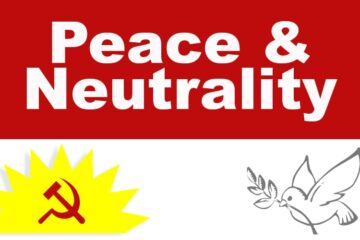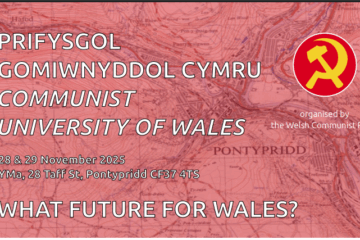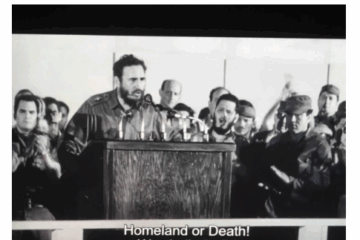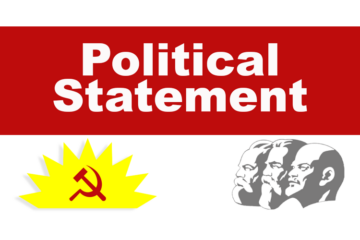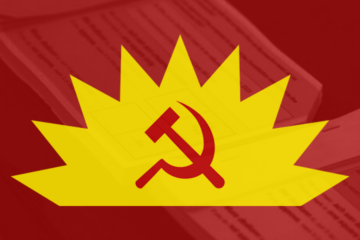2 May 2020
On 2 May 2020 the National Executive Committee of the Communist Party of Ireland discused and evaluated the current political and economic situation, both nationally and internationally, resulting from the coronavirus pandemic and the growing economic crisis, of which covid-19 is not the cause but simply the trigger.
The NEC expressed its solidarity with all those experiencing restrictions on their movement and with the tens of thousands of workers who have worked tirelessly and courageously to support their fellow-citizens during this pandemic. We salute all workers in the health, retail, transport and postal services as well as cleaning workers, who have shown great courage.
We also express our solidarity with the hundreds of millions of workers, the poor and oppressed peoples around the world now suffering quarantine and other severe restrictions and facing grave dangers because of their lack of access to the necessary medical treatment.
We also express our solidarity and acknowledge the role played by socialist countries, such as Cuba, China, and Viet Nam, during this crisis in sending thousands of doctors and medical supplies to countries affected by the pandemic, while some other countries, notably Venezuela and Nicaragua, have also offered assistance to their neighbours—while they themselves suffer criminal sanctions—sharing their resources with those who need them.
This stands in stark contrast to the actions of the imperialist powers, which have imposed renewed sanctions and blockades, while tens of millions suffer. A resolution in the United Nations General Assembly which appealed for the lifting of sanctions was blocked by the United States, Britain, and the European Union, so it could not achieve a consensus. The Irish state, as usual, tags along with the EU. They are also attempting to monopolise the purchase of necessary medical supplies and drugs, making it almost impossible for poorer countries to purchase them.
The system is now facing a number of interconnected crises: health, economic and financial, environmental, and political. These interconnected crises are placing even greater strains on an already deepening structural crisis of the system. On the global level, the imperialist powers, the United States in particular, are finding it increasingly difficult to impose their political will, especially facing the rising economic strength of China.
It is becoming ever clearer to many working people, both here in Ireland and throughout the capitalist world, that the system is incapable of solving the many deeply rooted systemic problems affecting our societies, including endemic poverty, homelessness, poor health services, low wages, precarious work, savage exploitation, and the environmental crisis.
As the pandemic unfolds, millions of women working in low-paid jobs are on the front lines of the crisis. The closure of child-care facilities has placed an even greater care responsibilities upon women as well as a growth in domestic violence and murders.
The covid-19 crisis has exposed a number of deep fault lines within Irish society, including the two-tier health system, large-scale homelessness, severe overcrowding, low pay, and precarious work. Millions of workers are experiencing quarantine, many of them not sure if they will have a job to return to when restrictions are lifted.
The scale of low pay and precarious work has been exposed in the Republic, with an estimated 400,000 workers receiving the emergency payment because their place of work is closed. A significant number are better off than when they were working.
For the last two decades the Irish state has been telling working people that there is a limit to what the Government could spend on health, housing, and child care and that the “market” was the primary method of providing health services, homes, and jobs, the services and facilities required for the older generation, and many other services that working people need and rely upon.
With the emergence of the pandemic, the state has borrowed billions to prop up this failed economic system. The Irish state—like the British state—has been forced to suspend austerity for the duration of this health crisis in order to save the system, only to reimpose it later and try to return to “business as usual,” while allowing capital to restructure and impose further cuts in workers’ rights and living standards. As experienced now by workers in Debenham’s and Lloyd’s pharmacies, labour will be further disciplined and controlled.
Because of the health crisis they have been forced to spend hundreds of millions to employ more doctors, nurses, and other medical staff. They have “found” the money to pay the owners of private medical companies €115 million a month for the use of their facilities, rather than ending the two-tier health system; and then it will be business as usual for private medicine and private health insurance companies.
Many establishment institutions in the Republic are forecasting that the unemployment rate could rise to 22 per cent in the second quarter of 2020, perhaps falling to 13 or 14 per cent by the end of 2020, with the loss of possibly 220,000 jobs, while the economy could shrink by 15 per cent. It is also estimated that government borrowing could increase by between €23 and €29 billion, with the national debt standing at €200 billion, rising sharply to about 125 per cent of gross national income.
The people in the north of Ireland have experienced decades of cuts in spending, controlled by the British state and with the collusion of the Northern Executive, with hospital and ward closures and the spread of private medical facilities and more and more people pushed into taking out health insurance. Under British rule in the North, 41 per cent of inpatients wait longer than 52 weeks, while only 0.06% of inpatients wait longer than 52 weeks in the midlands of England. There is no area of England or Wales where the figure is higher than 1 per cent.
The health crisis has exposed the deep fault line that is partition. Not alone has it been a political and economic failure for the Irish working class, it is also a grave danger to the health of our people. Covid-19 has exposed the fact that two separate strategies for dealing with the emergency have led to needless deaths and suffering, and exposed the near-total dependence and control of the Northern Executive by the British state. An all-Ireland fully public health service is the only lasting solution that is in the interests of working people.
Working people, both here in Ireland and globally, are going to face new attacks on their rights and their wages. Employers and monopoly corporations will attempt to impose even greater deregulation and a greater use new technologies.
Covid-19 is being used for the imposition and normalisation of measures that have the potential to undermine rights, freedoms, and guarantees, for attacks on democracy. Workers know from long experience that repressive laws remain in force long after the reason for which they were brought in, including new security measures and individual control and monitoring of social life.
With the continuing attempts to form a “government of the willing,” a government strong and coherent enough to impose further austerity as the scale of the economic downturn becomes clearer, what has been exposed is the deep hostility of the state to any move away from its economic and social strategy, its close alignment with the forces of global imperialism, the European Union and the United States. It is also becoming increasingly clear that the Irish ruling class will do whatever is necessary to thwart the vote for change by working people in the last general election.
Fianna Fáil and Fine Gael hope to gather enough votes from the deeply opportunist smaller parties in the Dáil. Their programme for a future government is full of greenwashing and pious aspirations about public health and the building of public housing, imposing the “cost-rental model” on the whole country, while stating categorically their firm loyalty to the EU. They want and need to exclude at all costs the formation of a left-led government.
The political fault lines are not confined to Ireland. The EU itself is revealing growing strains because of the lack of solidarity shown during the crisis. In the last decade the EU issued 36 demands in relation to the privatisation of health services, 105 demands for changes in public pensions, and 38 employment demands for undermining workers’ rights. The EU is the engine driving privatisation and giving priority to the market over people.
We should not mistake the increased disillusionment among the general populace within EU countries for any fundamental disillusionment or any retreat by the ruling classes of the member-states from continued membership. It is in their strategic interest to remain within this bloc. There are strong differences between the northern member-states and the Mediterranean states, and also with the EU Commission, but there is not yet a serious political rupture.
The economic and health crisis has exposed deep divisions over the nature of the support or assistance the EU is prepared to give to member-states heavily hit by the pandemic and the emerging economic and financial crisis on the back of it. The dominant, core member-states are in favour of states borrowing and agree that there should be no debt-sharing with those countries, incurring greater debt on terms that are subject to the balance of political forces in the negotiations.
Given past experience and the compliant and subservient role played by the Irish ruling class, it is only wishful thinking to believe that a favourable, anti-austerity agreement is possible, despite the hopes of the opportunist left forces within the EU, which scramble to find reasons for continuing to prop up this crumbling edifice of monopoly capitalism.
This can only result in further capital flows from the peripheral states and weaker economies into the core states, making them even more susceptible to political and economic pressures and greater fiscal regulation and controls from Brussels and Berlin.
As a first step towards a complete break with the EU we need to break with the straitjacket of the euro.
What the pandemic has also exposed is the damage and destruction already done to the global environment by monopoly capitalism. Growing international research is beginning to show that the emergence of new human diseases is closely linked to the loss and degradation of ecosystems and habitats, which in turn is driven by climate change, resource extraction, urban and industrial agricultural expansion, and pollution.
We will face further global health challenges, as capitalism is not capable of solving the environment crisis, unless we move to a more sustainable, planned socialist economy, working in harmony with nature.
The workers need to organise and mobilise now around key strategic issues and not to allow either the Irish and British governments or the Northern Executive to shape and determine the post covid-19 Ireland without resistance. We need to oppose their “new normal.” There should be no going back to this normality, of minimum-hours and part-time contracts, precarious work, bogus self employment, the gig economy. We need permanent, secure, well-paid jobs for our people.
Workers need to demand that the current level of health spending be sustained beyond covid-19, to push forward for one public health service for the whole country and an end to the failed two-tier two-jurisdiction health-care systems in Ireland.
Workers need a strategy that makes the provision of public housing central to any housing strategy throughout the country, with rents based on ability to pay, and a complete rent freeze. There is a need for the unity of progressive forces to oppose the imposition of the “cost-rental model” and to demand universal public housing, to develop wider and stronger campaigns, locally and nationally, to ensure that the working class is not forced to pay for the crisis.
Workers need to break the crippling controls and shackles placed on them by the state and employers by demanding that the Industrial Relations Act (1990) and all anti-worker laws in the Six Counties be replaced with a Fair Employment Act, guaranteeing, at a minimum, the right to union recognition, the right to union access, full collective bargaining rights, and a maximum 35-hour working week. There is clearly a need for a more radical, transformed trade union movement.
For the working class, and working people in general, the time is past for believing that they can patch this system to make it work in their favour. It is simply not possible.
It is the firm belief of Irish communists, born out of historical experience, that this system is beyond reform and that what is required is a radical transformation of the economic, social, political and cultural structures of our society, transforming how we live together and how we share this planet with the rest of humanity. It is only a socialist transformation in how we live together that can save our planet.



